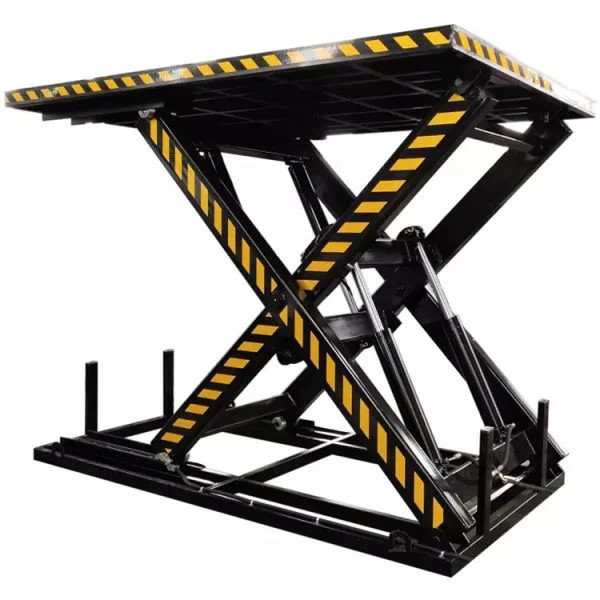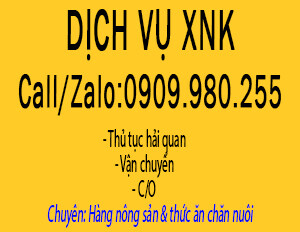Donald
Active Member
- Bài viết
- 115
- Reaction score
- 140
Hi all,
This is Summary and Division of Incoterms® 2020
Group E: Departure
EXW – Ex Works
This term represents the seller’s minimum obligation, as the seller only has to make the goods available at its location. The seller does not load the goods on the collecting vehicle and does not clear the goods for export. The buyer bears all the costs for transportation, export and import duties, and cargo insurance, as well as the risks of bringing the goods to their final destination. The buyer also carries out all customs formalities.
Group F: Pre Carriage
FCA – Free Carrier
The seller delivers the goods to the carrier and clears the goods for export. Once the goods have been delivered to the carrier, the buyer takes over all the costs and risks. The buyer is responsible for procuring and paying for cargo insurance and all import formalities. FCA is the most commonly used Incoterm – it is used in ~40% of all international shipments. FCA is one of the most favorable terms for the buyer who wants to have control over costs at origin and international transportation through a nominated freight forwarder.
FAS – Free Alongside Ship
The seller delivers the goods alongside the vessel at the named port of shipment and is required to clear the goods for export. The risk of loss of or damage to the goods passes to the buyer when the goods are alongside the vessel. The buyer bears all costs from that moment forward, including loading the cargo on bard the vessel, and is responsible for procuring the cargo insurance and carrying out all import formalities. This term can only be used for ocean and inland waterway transportation.
FOB – Free On Board
The seller delivers the goods to the vessel nominated by the buyer, loads the goods on board the ship, and clears the goods for export. The risk of loss of or damage to the goods passes when the goods are on board the vessel, and the buyer bears all costs from that moment onward, including cargo insurance. The buyer is responsible for all import formalities. This term can only be used for ocean and inland waterway transportation. The FCA term was changed to allow the parties to agree to issue a Bill of Lading (BOL) to the seller once the goods arrive at the port.
Group C: Main Carriage
CFR – Cost and Freight
The seller arranges transportation and pays for the goods to be delivered to the final port of destination. The seller is responsible for clearing the goods for export. As the risk of loss of or damage to the goods passes to the buyer when the goods are loaded on board the vessel, the buyer is responsible for procuring and paying for the cargo insurance. The buyer is responsible for all import formalities. This term can only be used for ocean and inland waterway transportation.
CIF – Cost, Insurance and Freight
The seller clears the goods for export and covers the costs of insurance (to at least the port of destination) and main carriage while in transit to the port of destination named in the sales contract. The risk of loss of or damage to the goods passes to the buyer when the goods are loaded on board the vessel. The buyer is responsible for on carriage costs, all import formalities, and unloading costs. The buyer should note that the seller is only required to procure the “minimum” insurance coverage. This term can only be used for ocean and inland waterway transportation.
CPT – Carriage Paid To
The seller clears the goods for export and pays for pre carriage and main carriage to named place of destination. The seller may pay on carriage costs, which should be noted in the contract. The buyer is responsible for procuring cargo insurance and handling all import formalities. This term has 2 critical points because risk passes and costs are transferred at different places: 1) risk passes once the goods have been delivered to the nominated carrier at the agreed place of shipment at origin, and 2) the named place of destination to which the seller must contract the carriage.
CIP – Carriage and Insurance Paid
The seller clears the goods for export and pays pre carriage and main carriage to the named place of destination. The seller may pay on carriage costs, which should be noted in the contact. This term has been updated to require the seller to purchase “nearly maximum” insurance coverage that is equivalent to Clause A (Institute of Cargo Clauses). The risk passes to the buyer when the goods are loaded on the first truck. The buyer is responsible for all import formalities.
Group D: On Carriage
DAP – Delivered At Place
The seller pays for carriage to the named place of destination and assumes all risks until the goods are ready for unloading by the buyer. The buyer is responsible for all costs related to import clearance. Unloading is the responsibility of the buyer.
DPU – Delivered at Place Unloaded
DPU replaces the DAT term. The seller clears the goods for export and pays for pre carriage, main carriage and on carriage costs. The buyer is responsible for all import clearance formalities. DPU is the only Incoterm explicitly tasking the seller with unloading.
DDP – Delivered Duty Paid
This terms represents the maximum obligation to the seller. The seller is responsible for delivering the goods to the named place of destination. The seller bears all the costs and risks involved in bringing the goods to the place of destination and has an obligation to clear the goods for export and import and to carry out all customs formalities, including the payment of all duties, taxes and customs fees. The parties are advised not to use DDP if the seller is unable to directly or indirectly obtain import clearance.
This is Summary and Division of Incoterms® 2020
Group E: Departure
EXW – Ex Works
This term represents the seller’s minimum obligation, as the seller only has to make the goods available at its location. The seller does not load the goods on the collecting vehicle and does not clear the goods for export. The buyer bears all the costs for transportation, export and import duties, and cargo insurance, as well as the risks of bringing the goods to their final destination. The buyer also carries out all customs formalities.
Group F: Pre Carriage
FCA – Free Carrier
The seller delivers the goods to the carrier and clears the goods for export. Once the goods have been delivered to the carrier, the buyer takes over all the costs and risks. The buyer is responsible for procuring and paying for cargo insurance and all import formalities. FCA is the most commonly used Incoterm – it is used in ~40% of all international shipments. FCA is one of the most favorable terms for the buyer who wants to have control over costs at origin and international transportation through a nominated freight forwarder.
FAS – Free Alongside Ship
The seller delivers the goods alongside the vessel at the named port of shipment and is required to clear the goods for export. The risk of loss of or damage to the goods passes to the buyer when the goods are alongside the vessel. The buyer bears all costs from that moment forward, including loading the cargo on bard the vessel, and is responsible for procuring the cargo insurance and carrying out all import formalities. This term can only be used for ocean and inland waterway transportation.
FOB – Free On Board
The seller delivers the goods to the vessel nominated by the buyer, loads the goods on board the ship, and clears the goods for export. The risk of loss of or damage to the goods passes when the goods are on board the vessel, and the buyer bears all costs from that moment onward, including cargo insurance. The buyer is responsible for all import formalities. This term can only be used for ocean and inland waterway transportation. The FCA term was changed to allow the parties to agree to issue a Bill of Lading (BOL) to the seller once the goods arrive at the port.
Group C: Main Carriage
CFR – Cost and Freight
The seller arranges transportation and pays for the goods to be delivered to the final port of destination. The seller is responsible for clearing the goods for export. As the risk of loss of or damage to the goods passes to the buyer when the goods are loaded on board the vessel, the buyer is responsible for procuring and paying for the cargo insurance. The buyer is responsible for all import formalities. This term can only be used for ocean and inland waterway transportation.
CIF – Cost, Insurance and Freight
The seller clears the goods for export and covers the costs of insurance (to at least the port of destination) and main carriage while in transit to the port of destination named in the sales contract. The risk of loss of or damage to the goods passes to the buyer when the goods are loaded on board the vessel. The buyer is responsible for on carriage costs, all import formalities, and unloading costs. The buyer should note that the seller is only required to procure the “minimum” insurance coverage. This term can only be used for ocean and inland waterway transportation.
CPT – Carriage Paid To
The seller clears the goods for export and pays for pre carriage and main carriage to named place of destination. The seller may pay on carriage costs, which should be noted in the contract. The buyer is responsible for procuring cargo insurance and handling all import formalities. This term has 2 critical points because risk passes and costs are transferred at different places: 1) risk passes once the goods have been delivered to the nominated carrier at the agreed place of shipment at origin, and 2) the named place of destination to which the seller must contract the carriage.
CIP – Carriage and Insurance Paid
The seller clears the goods for export and pays pre carriage and main carriage to the named place of destination. The seller may pay on carriage costs, which should be noted in the contact. This term has been updated to require the seller to purchase “nearly maximum” insurance coverage that is equivalent to Clause A (Institute of Cargo Clauses). The risk passes to the buyer when the goods are loaded on the first truck. The buyer is responsible for all import formalities.
Group D: On Carriage
DAP – Delivered At Place
The seller pays for carriage to the named place of destination and assumes all risks until the goods are ready for unloading by the buyer. The buyer is responsible for all costs related to import clearance. Unloading is the responsibility of the buyer.
DPU – Delivered at Place Unloaded
DPU replaces the DAT term. The seller clears the goods for export and pays for pre carriage, main carriage and on carriage costs. The buyer is responsible for all import clearance formalities. DPU is the only Incoterm explicitly tasking the seller with unloading.
DDP – Delivered Duty Paid
This terms represents the maximum obligation to the seller. The seller is responsible for delivering the goods to the named place of destination. The seller bears all the costs and risks involved in bringing the goods to the place of destination and has an obligation to clear the goods for export and import and to carry out all customs formalities, including the payment of all duties, taxes and customs fees. The parties are advised not to use DDP if the seller is unable to directly or indirectly obtain import clearance.
Đính kèm
-
375.9 KB Lượt xem: 4
Quan tâm nhiều
A
Phương thức thanh toán TTR
- Thread starter Anh Nguyễn 113
- Ngày gửi
L
Phương thức thanh toán TT là gì? Phân biệt TT và...
- Thread starter luuvanbi
- Ngày gửi
Các phương thức thanh toán trên tờ khai hải quan
- Thread starter Nguyên Đăng Việt Nam
- Ngày gửi
BỘ CHỨNG TỪ THANH TOÁN QUỐC TẾ CƠ BẢN - XUẤT NHẬP KHẨU
- Thread starter Chaien
- Ngày gửi
T
ƯU NHƯỢC ĐIỂM CỦA CÁC PHƯƠNG THỨC THANH TOÁN QUỐC TẾ
- Thread starter Trung
- Ngày gửi
L
Rủi ro khi áp dụng thanh toán CAD
- Thread starter lucasnguyen
- Ngày gửi











.jpg)